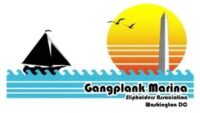If you are free tonight, please consider supporting this event that one of our fellow community members has played an important role in organizing.
WHEN: Wed. Jan. 20th, 6:00 – 8:30 pm
WHERE: GWU’s Jack Morton Auditorium in the Media & Public Affairs Building at 805 21st St NW, Washington, DC 20052 (H & 21st NW)
WHAT: Panel & town-hall style forum on drug policy and treatment programs using heroin-assisted treatment (HAT) as a case study, followed by light refreshments and a chance to meet the speakers. Speakers include a researcher, a policy-maker, a HAT trial participant and a criminologist. Co-sponsored by the Drug Policy Alliance, GWU’s School of Public Health & Health Services, and the Criminal Justice Policy Foundation.
Details on speakers below. This will be a challenging and fascinating evening. We hope to see you there.
The event is free and open to the public, so feel free to forward this information to interested friends, colleagues, clients.
————————————————————————————————–
What responsibility do we have to craft drug policies and implement treatment programs that address medical, public health, economic, and foreign affairs considerations?
HAT is a treatment option that has been implemented in the Netherlands and Switzerland and has inspired research trials in Canada, Germany, the United Kingdom, and Spain.
Special Remarks: DC Council Member Tommy Wells
Ward 6 representative for the DC City Council and Chair of the Committee on Human Services
Moderator: Dr. Irene Kuo
Associate Research Professor, Department of Epidemiology & Biostatistics, the George Washington University
Speakers:
Donald MacPherson
Former Drug Policy Coordinator for the City of Vancouver and author of Vancouver’s Four Pillars Drug Strategy
Dr. David C. Marsh, MD
One of the lead researchers in the North American Opiate Medication Initiative (NAOMI) trial of prescription heroin; Medical Director for Addiction, HIV/AIDS and Aboriginal Health Services for the Vancouver Community
Ethan Nadelmann, JD, PhD
Founder and executive director of the Drug Policy Alliance (DPA), the leading organization in the United States promoting alternatives to the drug war
Gary Occhipinti
Former heroin user, participant in the North American Opiate Medication Initiative (NAOMI) trials, and advocate for heroin-assisted treatment programs
Dr. Peter Reuter
Professor in the School of Public Policy and the Department of Criminology at the University of Maryland and author of “Can Heroin Maintenance Help Baltimore? What Baltimore can learn from the experience of other countries.”
After the forum, participants will be able to answer the following questions:
What is heroin-assisted treatment (HAT)?
Why should we discuss HAT now?
What are the benefits of this project to U.S. residents and the addicted population?
Is this just an attempt to legalize heroin?
